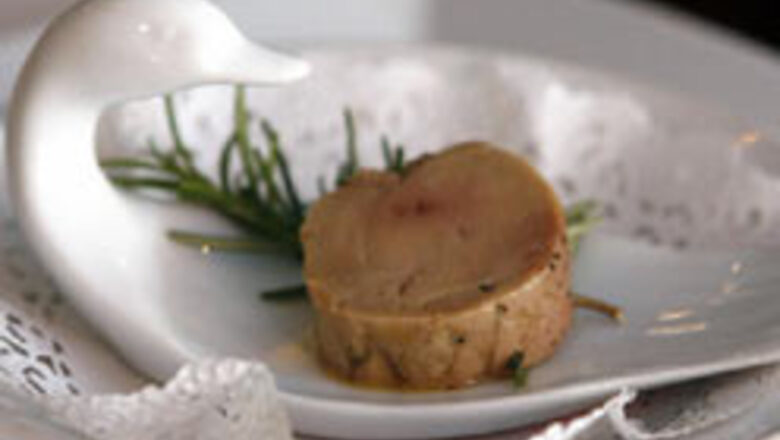
views
Chicago: With the Chicago’s ban on foie gras - a delicacy made of duck and goose liver - days away from going into effect, upscale restaurants in the city are serving it up like never before.
They've put together special menus featuring it in course after course - searing it, chilling it, throwing it into salads and turning it into sauce.
At the same time, foie gras (pronounced fwah-GRAH) enthusiasts are cooking up a lawsuit to keep it on menus or put it back after the ban takes effect August 22, holding fundraisers to finance their fight and asking diners to sign petitions in support of it.
And those diners? They're savoring it a lot more - or at least more often - than they would have had the City Council not sided with animal rights activists in April by banning it.
Many consider foie gras cruel because the geese and ducks are force-fed to make their livers bigger.
"There are other things I might have ordered, but I thought, I'm on the clock," said Ben Goldhirsh, a mortgage banker who recently enjoyed the extensive "Foie Gras, Farewell To Our Good Friend" menu at the restaurant MK.
"I want to eat enough of it so when the ban comes I won't care about it," said Donna Shanley, a real estate broker who's also stepped up consumption of what foodies refer to simply as ‘foie.’
But to the chefs who prepare the buttery indulgence and the customers who do the indulging, this is more than a last hurrah for foie gras. It is a chance not only to wrap their mouths around foie gras, but also to wrap foie gras in the flag.
"They're going too far when they're telling you what to eat, what not to eat," said Mario Lara, a sales rep who bought a table at a foie gras fundraiser at Cyrano's Bistrot & Wine Bar. "This is America."
Sounding more like politicians talking about the Middle East than a piece of meat, enthusiasts voice their concern that foie gras won't be the last tasty treat to make its way from menu to city ordinance.
Will veal be next? Lobster? And what about that fur coat in the closet?
PAGE_BREAK
"Now it becomes a political issue and it becomes a constitutional thing," said Rick Tramonto, the chef and owner of Tru. "My biggest concern is where it will stop."
More than a dozen countries, mostly in Europe, have banned production of the delicacy.
Given animal rights activists' success getting foie gras banned in Chicago, Didier Durand, the chef and owner of Cyrano's, is confident they will take aim at other foods as well. "Pretty soon we're going to be eating grass," he said.
That helps explain why a group of distributors, producers, processors and others in the business have formed the North American Foie Gras Association and hired a lobbyist to make their case as other cities, including Philadelphia, contemplate following Chicago's lead. And why Durand helped found Chicago Chefs for Choice to raise money to fight the ban.
The effort includes not only examining legal and legislative options, but also arguing that ducks and geese raised for their liver don't have it as bad as animal rights activists say they do.
Unlike chickens who can spend their entire lives in small pens with several other birds, never seeing the light of day, ducks and geese raised for foie gras spend their first 12 to 14 weeks walking around in open areas, said Bryan Scott, the group's lobbyist.
It isn't until the last two to four weeks of their lives that the birds are brought into individual cages and force-fed through a pipe to turn a regular-sized liver into foie gras - which is French for ‘fat liver.’ And even that process, he said, is not painful.
Not every chef agrees. One of Chicago's most famous, Charlie Trotter, took foie gras off the menu at his namesake restaurant after seeing how it is produced.
In Chicago, nobody is suggesting that exclusive restaurants will pull up stakes and head to the suburbs — though Tramonto is opening a restaurant just outside the city limits that will serve foie gras.
But talk to the chefs and they say in their world of four-star restaurants, the ban will have an effect.
"When things like this happen, it makes the city look silly," said Jean Joho, the chef at Everest. "Colleagues around the world are laughing. They definitely make jokes about Chicago."


















Comments
0 comment